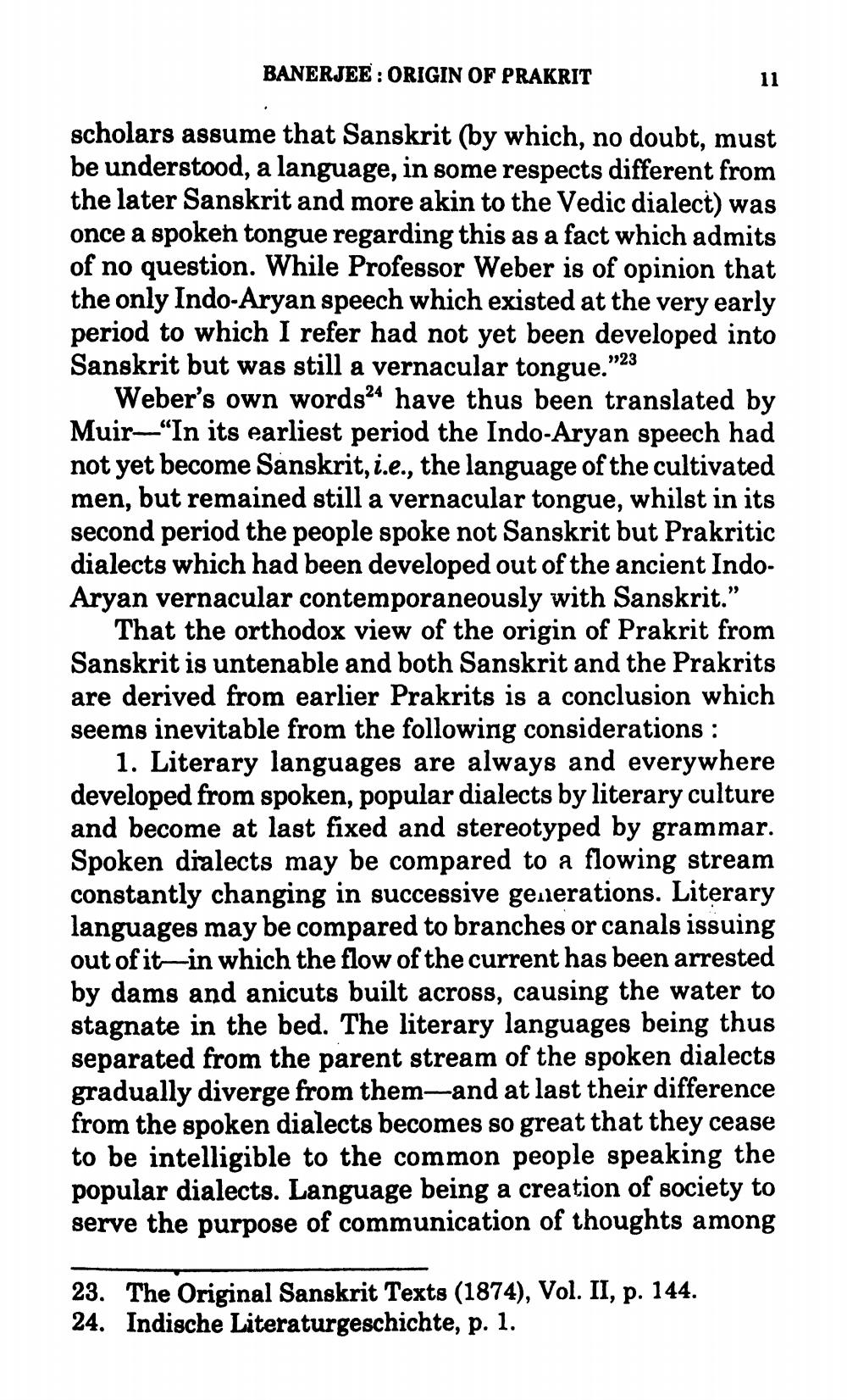________________
BANERJEE: ORIGIN OF PRAKRIT
11
scholars assume that Sanskrit (by which, no doubt, must be understood, a language, in some respects different from the later Sanskrit and more akin to the Vedic dialect) was once a spoken tongue regarding this as a fact which admits of no question. While Professor Weber is of opinion that the only Indo-Aryan speech which existed at the very early period to which I refer had not yet been developed into Sanskrit but was still a vernacular tongue."
"23
Weber's own words24 have thus been translated by Muir "In its earliest period the Indo-Aryan speech had not yet become Sanskrit, i.e., the language of the cultivated men, but remained still a vernacular tongue, whilst in its second period the people spoke not Sanskrit but Prakritic dialects which had been developed out of the ancient IndoAryan vernacular contemporaneously with Sanskrit."
That the orthodox view of the origin of Prakrit from Sanskrit is untenable and both Sanskrit and the Prakrits are derived from earlier Prakrits is a conclusion which seems inevitable from the following considerations :
1. Literary languages are always and everywhere developed from spoken, popular dialects by literary culture and become at last fixed and stereotyped by grammar. Spoken dialects may be compared to a flowing stream constantly changing in successive generations. Literary languages may be compared to branches or canals issuing out of it-in which the flow of the current has been arrested by dams and anicuts built across, causing the water to stagnate in the bed. The literary languages being thus separated from the parent stream of the spoken dialects gradually diverge from them-and at last their difference from the spoken dialects becomes so great that they cease to be intelligible to the common people speaking the popular dialects. Language being a creation of society to serve the purpose of communication of thoughts among
23. The Original Sanskrit Texts (1874), Vol. II, p. 144. 24. Indische Literaturgeschichte, p. 1.




